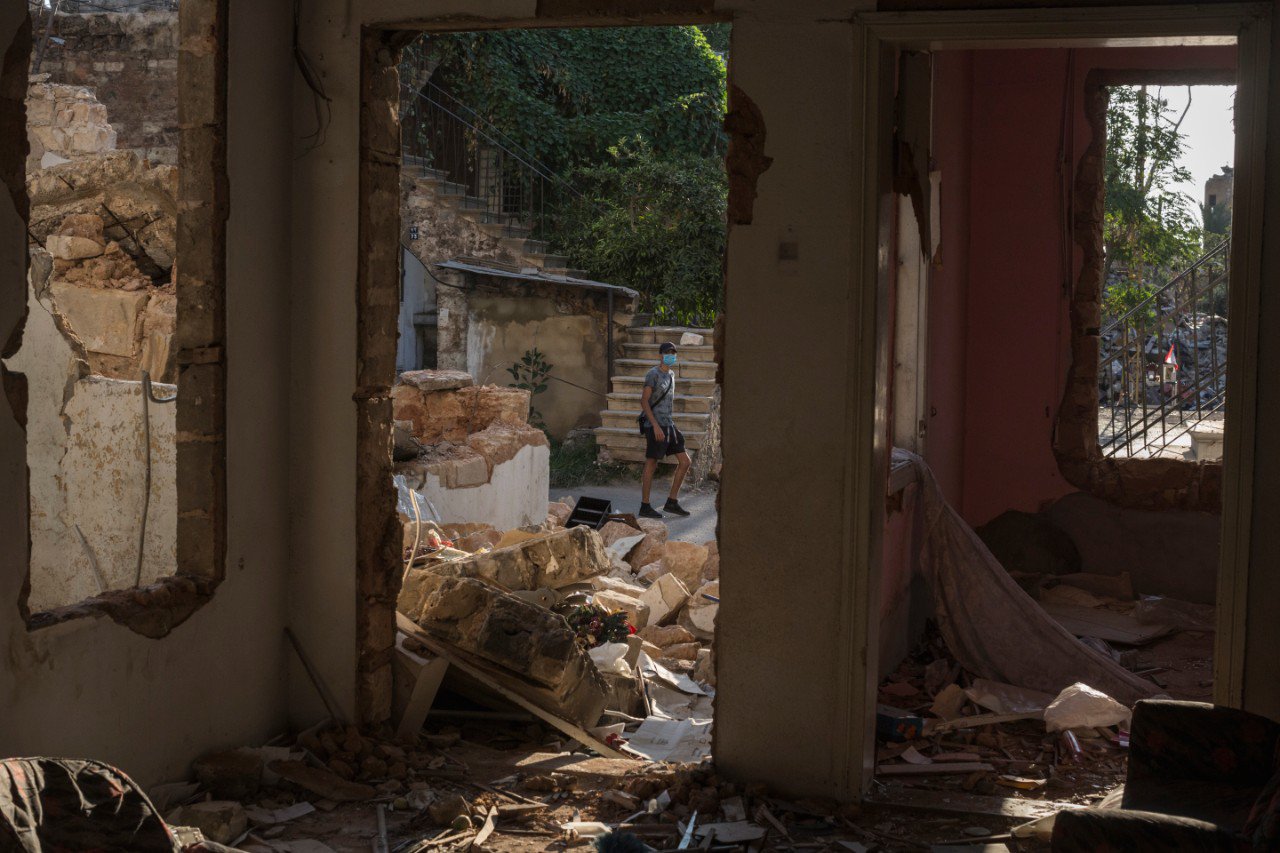Thousands struggle to put food on the table and afford such basics as windows and doors.
On August 4, a massive blast in the port of Beirut ripped through the city, killing over 200 people, injuring thousands, and destroying the homes of an estimated 300,000.
The people of Beirut came together in the midst of the overwhelming damage, trauma, and outrage over this preventable disaster as the true first responders, helping neighbors, friends, and complete strangers access urgent resources, such as medical care, and working together to clean up the debris.
Before the blast hit, many families in Lebanon were already struggling through an economic crisis—an estimated 50 percent of the population were living under the poverty line and the Lira’s value had dropped by 80 percent. Now, one month later, it’s becoming clear how longstanding inequality, massive inflation, and COVID-19 have compounded this humanitarian disaster for tens of thousands, making it almost impossible for them to recover. Many can’t afford the basics like windows and doors to rebuild and get back on their feet.

“Huge inflation has meant the cost of basic materials needed to rebuild homes and businesses is out of reach for thousands of people who were struggling to get by even before the blast. While the minimum wage is just under $450 a month, the cost of replacing one window is now nearly $500 and a door up to $1000,” says Bachir Ayoub, Oxfam’s policy lead in Lebanon. “Many people are unable to put food on the table, let alone repair their houses. These families need urgent assistance to recover from this disaster and rebuild their lives.”
And, as coronavirus cases surge, the cost of a single test is $100 and well out of reach for most people.
Reaching the most vulnerable
We are working with 11 Lebanese organizations to ensure that Beirut’s most marginalized people are not left behind and instead have the support they need to recover from the blast.
Our partner-led response is providing over 9,000 people with support, ranging from emergency cash and food, medical services, mental health support, legal assistance, and help to repair and rebuild homes and businesses. We will focus on supporting local leadership, and prioritize reaching people with disabilities, the elderly, women and girls—who are now at greater risk of violence because of unsafe houses—migrant workers, refugees, and the LGBTQ+ community.
“We are worried that the growing inequality and suffering we were already seeing in some of Lebanon’s most vulnerable communities—like refugees and migrant workers, the elderly, and LGBTQ+ community —will only get worse, and they will fall even farther behind,” says Ayoub.
But there is still too much that needs to be done for Beirut to begin to recover. Celine El Kik, a worker from KAFA, one of the organizations Oxfam is partnering with, says the mental scars of the blast will linger long after the physical damage has been repaired. “The port explosion affected all of us,” she says, “but especially women who were already vulnerable. We're providing social and legal support, as well as cash assistance for people who lost their jobs or their houses.”
Oxfam is calling for fair and just distribution of aid to provide critical support to these vulnerable communities and people who will be unable to cope and rebuild their lives without targeted and transparent aid.
